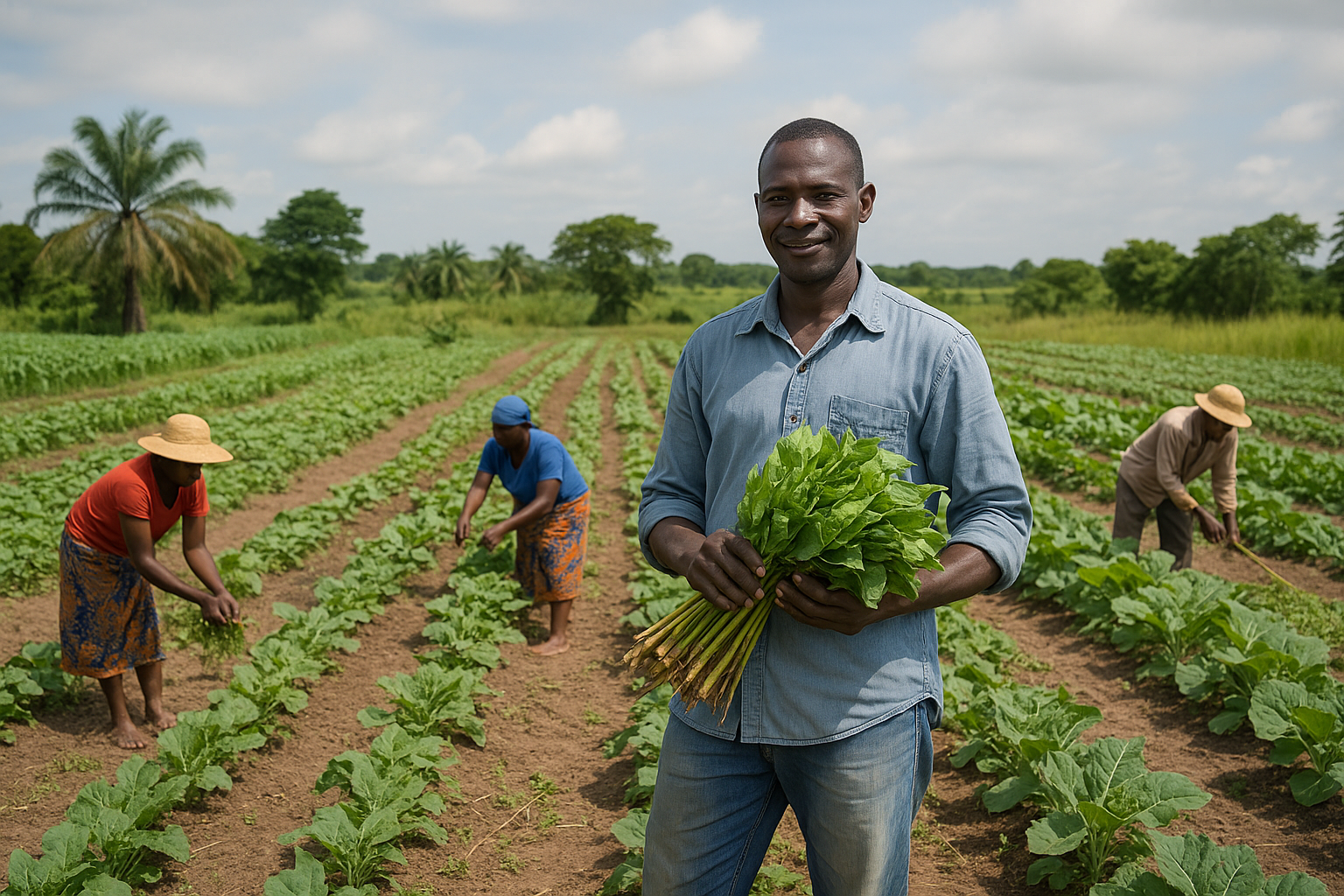From Mputi to Success: Young Farmers of Jay Jay Farming Lead Eastern Cape’s R100m Cropping Season
Eastern Cape MEC for Agriculture, Nonceba Kontsiwe, hailed Jay Jay Farming as a model of excellence and perseverance.

- Country:
- South Africa
From the rolling fields of Mputi Village near Mthatha emerges a story of resilience, youth empowerment, and agricultural transformation. What began as a modest effort by a group of passionate young farmers has grown into Jay Jay Farming, a thriving enterprise that today symbolises hope for a new generation determined to combat unemployment and food insecurity through innovation and hard work.
On Thursday, the Eastern Cape Department of Agriculture officially launched the R100 million 2025/26 Cropping Season in Bhaziya Village, Mthatha. The event coincided with World Food Security Month and shone a spotlight on how youth-led agricultural ventures like Jay Jay Farming are redefining rural economies and inspiring national pride.
Showcasing Youth Excellence in Agriculture
Eastern Cape MEC for Agriculture, Nonceba Kontsiwe, hailed Jay Jay Farming as a model of excellence and perseverance. The farm's success, she said, demonstrates what can be achieved when young people embrace agriculture not only as a means of survival but as a pathway to prosperity and self-sufficiency.
"We are here to showcase to farmers that if they start something, the department is here to support them," Kontsiwe said. "We are using these young farmers, who have done a lot, to showcase excellence. I am glad to see young men and women working so hard."
The MEC emphasised that agriculture remains the backbone of the provincial economy, providing sustainable livelihoods and economic stability. "Agriculture is the only way to go. Young people must see this sector as a driver of growth and stop the notion that it is only for the uneducated," she added. "Mentorship programmes exist to assist new entrants in producing high-quality yields and achieving financial independence."
The Journey of Jay Jay Farming
For Sipho Joyi, co-owner of Jay Jay Farming, the journey from humble beginnings to success has been anything but smooth. "It has been seven years since we started this journey. We have faced challenges, but we stood firm and kept going," Joyi said proudly. "Today, we can feed our families and those we employ. It has all been worth it."
Jay Jay Farming has expanded its production to include a variety of grains and vegetables such as yellow and white maize, soya beans, potatoes, cabbages, spinach, and green mealies. The farm currently employs 12 permanent workers and up to 50 seasonal employees during peak planting and harvesting seasons, providing crucial job opportunities in a province grappling with high youth unemployment.
Moreover, the enterprise rents additional ploughing fields from the local community, ensuring that income circulates within the rural economy.
Expanding Horizons: 2025/26 Cropping Season
This year, Jay Jay Farming will undertake its most ambitious planting programme yet, made possible through partnerships with both government and private institutions.
-
130 hectares of soybeans, supported by Land Bank and Ukhanyo Development Farmer
-
500 hectares of maize, funded by the Department of Agriculture
-
2 hectares of potatoes, in collaboration with Potato SA and departmental programmes
These partnerships reflect the department's strategy to blend government support with private sector collaboration, creating scalable agricultural models that empower young entrepreneurs.
Collaboration Breeds Growth
MEC Kontsiwe praised the Jay Jay Farming team for its independence and proactive spirit. "They did not rely solely on the department, even though we support them greatly," she said. "They sought assistance from the private sector for mentoring and resources. Farmers like these are crucial in helping us fight poverty and build food security."
The MEC further highlighted that the department's broader objective is to expose small-scale and emerging farmers to the full agricultural value chain—from production to processing and marketing—equipping them to evolve into commercial-scale producers.
The Broader Agricultural Outlook
The 2025/26 summer cropping season will cover approximately 23 000 hectares, focusing on grain, vegetable, and fodder crops. This builds on the success of the 2024/25 season, where 22 584 hectares of maize were planted, yielding an impressive 112 920 tons of grain.
About 90% of the targeted land in the coming season will continue to be devoted to grain production, reinforcing the province's position as one of South Africa's agricultural powerhouses.
Agriculture as a Tool for Transformation
The story of Jay Jay Farming illustrates how agriculture can be a catalyst for economic freedom and community development when driven by youth innovation and institutional support. With government, financial institutions, and private partners joining hands, initiatives like these demonstrate that agriculture remains a viable and sustainable solution to both youth unemployment and rural poverty.
As the new cropping season begins, the fields of Bhaziya and Mputi are not just being planted with seeds—they are being planted with hope, ambition, and resilience.
"Let this season mark a new chapter," said MEC Kontsiwe. "A chapter where young people see agriculture as a powerful tool for empowerment, growth, and transformation."
ALSO READ
-
Haryana's Green Revolution: Decomposer Initiative to Transform Agriculture
-
IFAD and Italy’s BF S.p.A. Partner to Boost Sustainable Agriculture in Africa
-
Uganda’s Parliament Approves Over US$1.3 Billion Loans for Key Infrastructure and Agriculture
-
Cyclone Montha Wreaks Havoc on Telangana's Agriculture
-
Govt to introduce stringent seed law in Budget session, says Agriculture Minister









